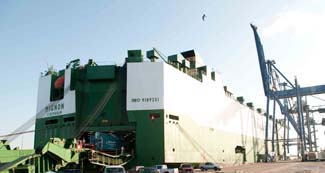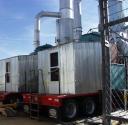The National Board Incident Report recently indicated that 79 percent of all reported boiler accidents were attributed to two causes: low water cutoff, and operator error/poor maintenance. A low water cutoff condition occurs when the water level in the boiler steam drum drops below a pre-set safe level (as determined by the boiler manufacturer) and, in turn, shuts off the boiler. This condition, and the subsequent cause, should be investigated and corrected immediately. Failure of this safety control may result, at a minimum, in costly tube or vessel repairs, or, in the worst cases, catastrophic boiler and building damage and personnel injury or death.
Some common causes of low water conditions include:
• Feedwater pump failure
• Control valve failure
• Loss of water to the deaerator or make-up water system
• Drum level controller failure
• Drum level controller inadvertently left in "manual" position
• Loss of plant air pressure to the control valve actuator
• Safety valve lifting
• Wide variations or sudden changes in steam load
Avoiding the above conditions is critical to ensuring safe and reliable boiler operation. Maintenance, inspection, and operational logs are recommended and required by insurance companies. These records not only help determine boiler performance trends, but also keep operators focused on the safe performance of the boiler and auxiliary plant equipment. To this end, unnecessary boiler downtime (together with the loss of plant production) and lost time accidents are avoided.
Our main priority is to provide customers with safe and reliable rental and new boiler and steam plant equipment. We have many operational procedures in place that help us achieve this goal. For instance, each piece of rental equipment is thoroughly inspected before and after a rental project. Our inspection and maintenance checklists cover all of the mechanical and electrical systems, including feedwater systems, water softeners, chemical systems, and the trailers themselves (for mobile equipment such as our mobile boiler rooms). In addition, critical parts, including low water cut-offs, constantly undergo inspection and testing. If found to be faulty, they are either immediately repaired or replaced.
The only way to avoid premature downtime and accidents (in the worst cases) is to make certain that operators and plant owners are committed to an on-going operational and preventative maintenance programs. The Hartford Steam Boiler website
www.hsb.com is a good resource. Turning a blind eye to safe boiler operations puts operators, company employees, and equipment at unnecessary risk.
 If you love tuna then you are most likely already familiar with Chicken of the Sea. The company is opening a canning operation in Lyons, GA and they have selected Nationwide Boiler to supply a 650 hp (22,500 lbs/hr) Mobile Boiler Room for temporary steam. The new 200,000 square-foot facility will create 200 jobs around Toombs County and it is expected to be fully operational by October 2009.
If you love tuna then you are most likely already familiar with Chicken of the Sea. The company is opening a canning operation in Lyons, GA and they have selected Nationwide Boiler to supply a 650 hp (22,500 lbs/hr) Mobile Boiler Room for temporary steam. The new 200,000 square-foot facility will create 200 jobs around Toombs County and it is expected to be fully operational by October 2009.



